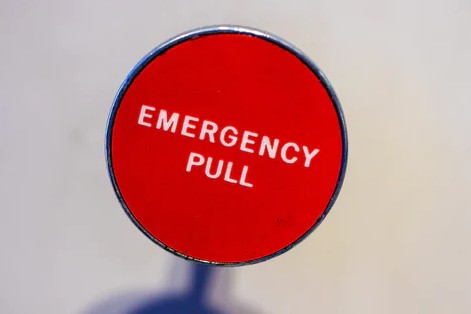Nearly 20% of U.S. adults live with mental illness, according to the National Institute of Mental Health. NIMH says that mental illness is common. Their statistics on mental illness include people that have been diagnosed with the illness for a while, but they exclude developmental and substance use disorders. Although they state mental illness is common, I would bet that most people haven’t experienced someone with a serious mental illness in a crisis state. And they don’t know what to do when it happens.
Emergencies happen all the time, yet most of us haven’t experienced a mental health crisis. We know how to handle ourselves in many crisis situations. As kids we’re taught to stop, drop and roll for fires. Or to get under our desks for earthquakes. We’re taught various levels of first aid techniques and how to rescue someone drowning. But we do nothing to prepare families for mental health issues. The general public knows almost nothing about what to do when someone is hallucinating, talking to themselves, delusional, or trying to harm themselves. We just don’t teach this to children or families. Are you prepared if someone has a mental health emergency?
When someone is having a full-blown mental health crisis and is behaving in a manner that appears dangerous, states have policies or laws to manage the infirm individuals. In California, a 5150 refers to the 72 hour involuntary treatment of a person who is a danger to themselves, a danger to others, or gravely disabled. If this were to happen to you or a loved one, are you familiar with the legal ramifications of mental illness?
Families looking for support, information, resources and more have come to depend on agencies like NAMI for help because navigating the complexities associated with mental illness is not simple.
NAMI, or the National Alliance on Mental Illness is a non-profit organization providing information and resources to families in crisis. One example of a very useful resource provided by the Santa Clara County chapter is called the Family Inputs for 5150 crisis document. This is available online and is a very useful tool for families to find the support and information they need.
The Family Inputs for a 5150 Crisis includes useful information like ‘Good to Know’, ‘What to Do’ and ‘Resources’ for before, during and after a crisis as well as during treatment.
Find chapters near you for additional relevant resources (like the link we’ve provided for you here from NAMI of Santa Clara County) at the NAMI website, https://www.nami.org/Home
Photo by Jason Leung on Unsplash




Leave A Comment
You must be logged in to post a comment.